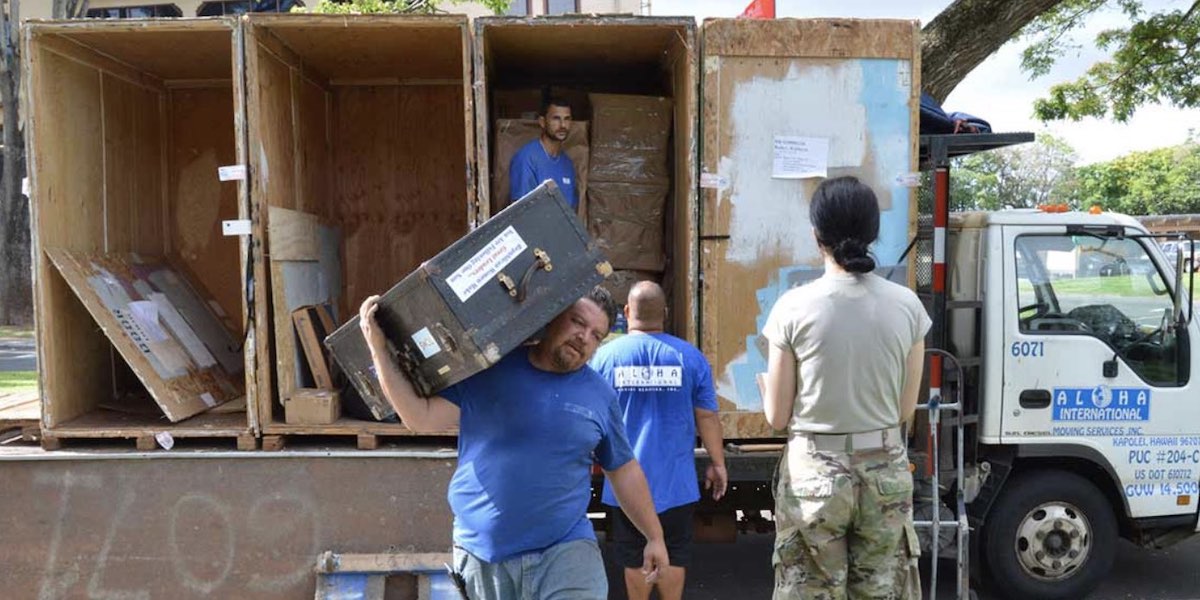
27 Jul 2020 Lack of Transparency in Government Contracts Hurts Service Members
Last month when TRANSCOM (United States Transportation Command) pulled back its $7 billion contract award to Norwegian subsidiary American Roll on Roll off Carrier (ARC) taxpayers breathed a sigh of relief. The contract had been awarded on April 30 in the midst of COVID-19 to overhaul the domestic and international household good’s relocation system for over 350,000 U.S. military servicemembers.
The U.S. Department of Defense (DOD) put out the bid for the Global Household Goods Contract (GHC) to “transform” the way the military moving system operates. Presently there is a labyrinthine process involving nearly 50 separate DOD offices which hire private movers. The goal is to make it easier for DOD to manage supply and demand in the moving industry by setting up long-term relationships with moving companies.
But when the initital award was announced, immediately there were complaints that ARC’s selected bid was a staggering $2 billion more than other competitive bids. Notably the most significant concern was the claim that ARC had failed to disclose the criminal history Wallenius Wilhelmsen Logistics AS (WWLAS).
Since 2016, all federal contract applicants have been required to disclose felony convictions and any outstanding tax liability. After their initial award, a formal protest effort by other contractors was brought to the attention of the DOD. It turns out that Wallenius Wilhelmsen Logistics AS (WWLAS) had been indicted and plead guilty to a bid rigging and price fixing conspiracy in 2016 and consequently paid a nearly $100 million fine.
Rather than being an open and shut case of a contract application violation, this award is playing out more like a magicians’ bait and switch trick.
First TRANSCOM issued a sober public statement,” U.S. TRANSCOM intends to take corrective action to consider this new information, gather facts and conduct a review of the award.”
When TRANSCOM announced that it would take “corrective action” many assumed that the contract would likely be permanently rescinded. But instead after less than 2 weeks DOD abruptly changed course — and like a rabbit jumping out of a top hat — it announced that there wouldn’t be taking any corrective action after all, and simply re-awarded the contract to ARC.
To call the statement a surprise is an understatement. Typically, when the feds announce that they are taking corrective action, the die is cast. Even if the contract isn’t ultimately awarded to another party, there is a thorough review undertaken which can last up to 4 months.
Supposedly, the whole matter was a clerical error. ARC explained to the DOD that it isn’t actually owned by Wallenius Wilhelmsen Logistics AS (WWLAS) as it had indicated in the System for Award Management (SAM), but is instead owned by Wallenius Wilhelmsen ASA.
Even if this were true, one wonders how a company can expect to effectively service a $7 billion contract when it can’t submit its own ownership record properly in its application. Moreover, skeptics have been left wondering about the actual relationships of the similar sounding “sister companies.” ARC’s Norwegian-Swedish parent company — is also the parent to WWLAS, the company that was convicted. After a reorganization and a merger with a partial shareholder in 2017 both ARC and WWLAS became wholly-owned subsidiaries. In other words, after the convictions a reorganization occurred which conveniently created a subsidiary free from criminal taint.
But the conviction reporting requirement is about transparency. A conviction in and of itself wouldn’t have to be a bar to getting a contract. Thus, the failure to disclose is a troublesome concern. With this seeming wave of a wand ARC has somehow managed to dismiss these concerns and with it maintain an extra $2 billion overage.
At this point how the DOD could conclude the two Wallenius Wilhelmsen companies are meaningfully distinct from one another for the purposes of federal disclosure rules is unclear. And even this “legal” distinction shouldn’t make it credible to claim that ARC “does not have a record of misconduct.”
Our men and women in the military absolutely need an efficient and cost-effective way to organize relocations all over the globe. Even with your eyes closed and the sound of hand clap to distract you, most taxpayers know that a contract billions of dollars over and above alternate bids from a company with a questionable criminal history isn’t the way to accomplish that.
Horace Cooper is co-chairman of the Project 21 National Advisory Board, a senior fellow with the National Center for Public Policy Research and a legal commentator. This article was originally published by Newsmax.




